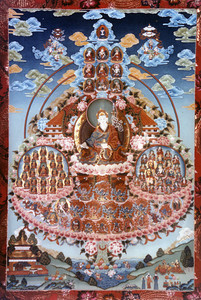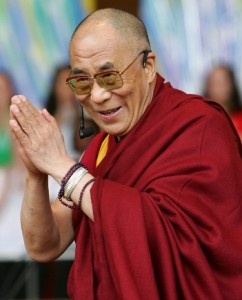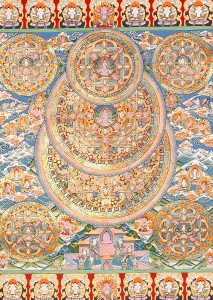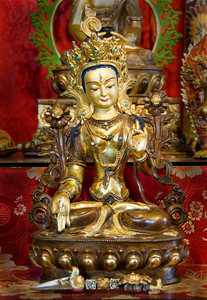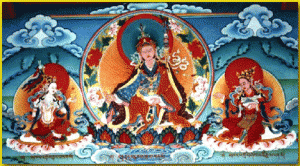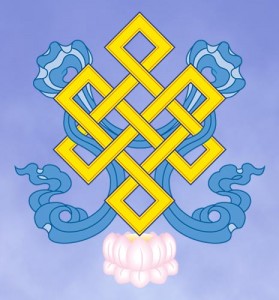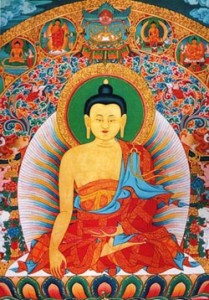An excerpt from a teaching by Jetsunma Ahkon Lhamo called Turning Adversity Into Felicity
We try very hard as practitioners to practice Guru Yoga clearly and purely, the practice of fervent regard toward the Guru, utilizing the Guru as a tool of benefit in one’s life. One thing that we should be perfectly clear about when we are trying to practice in this way, is which religion we’re actually practicing. Our tendency as Westerners is to repeat the patterns and ideas that we have seen before in the religions that have been in our culture far longer than Buddhism has been. In the religions that our parents practiced and their parents before them, that are native to our Western culture, the idea of looking at the object of refuge, might be, perhaps, if one is a Christian, Jesus, or if one were a Muslim, Mohammed. I don’t know enough about the other religions to really say clearly. If I’m making a mistake, please pardon me. But I will say that generally the pattern that we have been taught is that you have faith, and the declaration of faith is simply enough, that you embrace this idea of faith, and the faith itself– there’s an element of magic to it, in a sense. It seems as though the faith itself will simply carry us through.
In Buddhism we don’t feel like that, although faith is certainly an element, and it certainly has the capacity to carry us. Buddhism is, uniquely, a religion of cause and effect relationships. When we go into life situations, we do so with our brains intact and our eyes open. We clearly are aware that without creating the causes for happiness there will not be the condition of happiness, that you cannot create an apple tree through a grape seed. It simply doesn’t happen. Cause and result seemingly arise one after the other, but in fact we are taught in Buddhist teaching that they arise at the same time, interdependently. And we are a religion of realizing that we must create the auspicious causes in order to receive the appropriate results. So while we want to adopt the idea of faith, we wouldn’t do a practice or hold an inner mind posture that would be what I call “idiot faith.” We would not engage in a practice that, well, quite frankly, makes us look a bit like a bliss-ninny. We would not engage in a practice that was mindless and not thought through.
Faith is definitely a component, but the way that it is used when we are using the practice of Guru Yoga, is like this. All conditions have within them a mixture. Even the best conditions, the most wonderful conditions, have within them, because they arise in samsara, the seed or inherent causes by which equal amounts of unhappiness as well as happiness will arise. And so, when unhappiness comes to us, we absolutely should engage in curative measures.
Primarily we would engage in curative measures through establishing faith and confidence in the Guru, but it doesn’t stop there. It isn’t simply holding the idea of faith and confidence in the Guru. At that point, with faith and confidence in the Guru, we actually have to rely on the teachings that the Guru has given us. That’s how you have faith and confidence in the teacher. You don’t just say it and proclaim it and go back into some deluded “oh-don’t-worry-everything’s-going-to-be-fine” kind of idea. You would, with faith and confidence in the Guru, begin to use what the Guru has taught.
The Guru teaches us first of all, of course, that in order to create the result of happiness and freedom, we must create the causes of happiness and freedom. The causes of happiness and freedom are given to us in our Dharma practice. They’re not a secret. You can come here; you can learn; you can begin today, this very moment, to engage in creating the causes that will create your future happiness.
© Jetsunma Ahkön Lhamo
